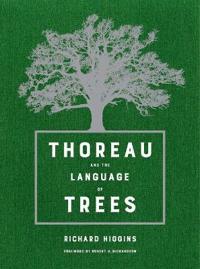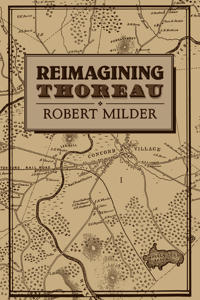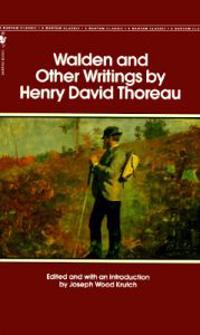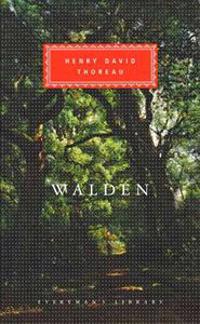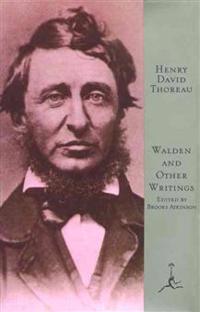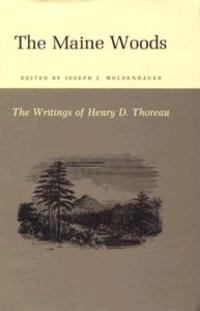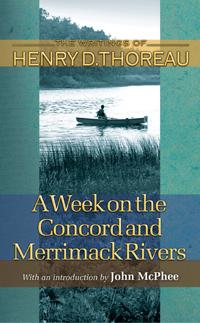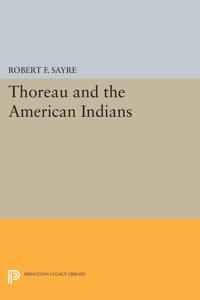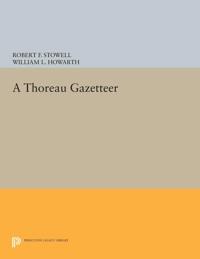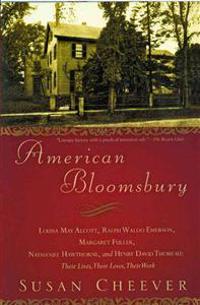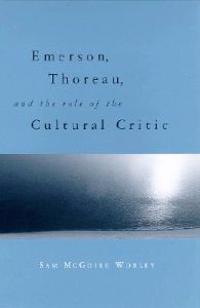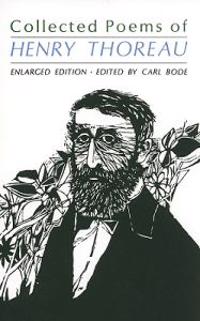Thoreau and Emerson Classic Works
ISBN: 9780486807416 - UTGIVEN: 2016-01The philosophical, religious, and literary movement known as Transcendentalism flourished inNew England during the 1820s 30s. This convenient boxed set presents three volumes by the movement's foremost figures: Henry David Thoreau's "Civil Disobedience and Other Essays" and "Walden, Or Life in the W[...]
Henry Thoreau: A Life of the Mind (Övrig)
avBarry Moser, Robert D. Richardson
ISBN: 9780520063464 - UTGIVEN: 1988-01-21The two years Thoreau spent at Walden Pond and the night he spent in the Concord jail are among the most familiar features of the American intellectual landcscape. In this new biography, based on a rexamination of Thoreau's manuscripts and on a retracing of his trips, Robert Richardson offers a view[...]
Henry David Thoreau and the Moral Agency of Knowing (Pocket)
avAlfred I. Tauber
ISBN: 9780520239159 - UTGIVEN: 2003-05-01Thoreau and the Language of Trees
ISBN: 9780520294042 - UTGIVEN: 2017-04Trees were central to Henry David Thoreau's creativity as a writer, his work as a naturalist, his thought, and his inner life. His portraits of them were so perfect, it was as if he could see the sap flowing beneath their bark. When Thoreau wrote that the poet loves the pine tree as his own shadow i[...]
Reimagining Thoreau
ISBN: 9780521068369 - UTGIVEN: 2008-07Reimagining Thoreau synthesises the interests of the intellectual and psychological biographer and the literary critic in a reconsideration of Thoreau's career from his graduation from Harvard in 1837 to his death in 1862. The purposes of the book are threefold: to situate Thoreau's aims and achieve[...]
Walden and Other Writings (Pocket)
avHenry David Thoreau
ISBN: 9780553212464 - UTGIVEN: 198309With their call for"simplicity, simplicity, simplicity!", for self-honesty, and for harmony with nature, the writings of Henry David Thoreau are perhaps the most influential philosophical works in all American literature. The selections in tis volume represent Thoreau at his best. Included in [...]
Walden (Inbunden)
avHenry David Thoreau
ISBN: 9780618457175 - UTGIVEN: 200408This special 150th anniversary edition is beautifully illustrated with Scot Miller's spectacular color photos, which are accompanied by historic black-and-white photos and drawings.[...]
Thoreau's Country
ISBN: 9780674006683 - UTGIVEN: 2001-12In 1977 David Foster took to the woods of New England to build a cabin with his own hands. Along with a few tools he brought a copy of the journals of Henry David Thoreau. Foster was struck by how different the forested landscape around him was from the one Thoreau described more than a century earl[...]
Walden's Shore: Henry David Thoreau and Nineteenth-Century Science (Inbunden)
avRobert M. Thorson
ISBN: 9780674724785 - UTGIVEN: 2014-01-07Walden (Inbunden)
avHenry David Thoreau
ISBN: 9780679418962 - UTGIVEN: 199301By virtue of its casual, off-handedly brilliant wisdom and the easy splendor of its nature writing, Thoreau's account of his adventure in self-reliance on the shores of a pond in Massachusetts is one of the signposts by which the modern mind has located itself in an increasingly bewildering world. D[...]
Walden and Other Writings (Pocket)
avHenry David Thoreau
ISBN: 9780679783343 - UTGIVEN: 2000-11-01Gathers Thoreau's influential works, including "Walden," "Civil Disobedience," and "Slavery in Massachusetts," which reflect the naturalist's thoughts on self-reliance and moral independence.[...]
The Writings of Henry David Thoreau (Inbunden)
ISBN: 9780691062242 - UTGIVEN: 1972-07"The Maine Woods" is a characteristically Thoreauvian book: a personal account of exploration, of exterior and interior discovery in a natural setting, conveyed in taut, workmanlike prose. Thoreau's evocative renderings of the life of the primitive forest - its mountains, waterways, fauna, flora, an[...]
Excursions (Övrig)
avHenry David Thoreau
ISBN: 9780691064505 - UTGIVEN: 2007-10-08"Excursions" presents texts of nine essays, including some of Henry D. Thoreau's most engaging and popular works, newly edited and based on the most authoritative versions of each. These essays represent Thoreau in many stages of his writing career, ranging from 1842 - when he accepted Emerson's com[...]
Walden (Pocket)
avHenry David Thoreau, J. Lyndon Shanley
ISBN: 9780691096124 - UTGIVEN: 2004-03-29Originally published in 1854, Walden or Life in the Woods, is a vivid account of the time that Henry D. Thoreau lived alone in a secluded cabin at Walden Pond. It is one of the most influential and compelling books in American literature.[...]
Cape Cod (Övrig)
avHenry David Thoreau
ISBN: 9780691118420 - UTGIVEN: 2004-05-24This new paperback edition of Henry D. Thoreau's compelling account of Cape Cod contains the complete, definitive text of the original. Introduced by American poet and literary critic Robert Pinsky - himself a resident of Cape Cod - this volume contains some of Thoreau's most beautiful writings. In [...]
Maine Woods, The (Övrig)
avHenry David Thoreau
ISBN: 9780691118772 - UTGIVEN: 2004-05-24Henry D. Thoreau traveled to the backwoods of Maine in 1846, 1853, and 1857. Originally published in 1864, and published now with a new introduction by Paul Theroux, this volume is a powerful telling of those journeys through a rugged and largely unspoiled land. It presents Thoreau's fullest account[...]
A Week on the Concord and Merrimack Rivers (Häftad)
avHenry David Thoreau
ISBN: 9780691118789 - UTGIVEN: 200405Henry D. Thoreau's classic "A Week on the Concord and Merrimack Rivers" is published now as a new paperback edition and includes an introduction by noted writer John McPhee. This work - unusual for its symbolism and structure, its criticism of Christian institutions, and its many-layered storytellin[...]
Thoreau and the American Indians
ISBN: 9780691609881 - UTGIVEN: 2014-07Thoreau turned toward Indians in his writing as well as in his life, and this book traces the long and arduous process by which his ideas about Indians evolved from savagist stereotypes to attitudes of greater originality. Originally published in 1977. The Princeton Legacy Library uses the latest [...]
A Thoreau Gazetteer
ISBN: 9780691645216 - UTGIVEN: 2016-06"The primary aim of this book is to give its readers an idea of the places Thoreau describes in his own books. The importance of those places will depend upon the readers' critical views of Thoreau. To those who read him literally, the maps will provide a convenient way of following his travels in M[...]
Thoreau's Nature (häftad)
ISBN: 9780742521414 - UTGIVEN: 2002-04Thoreau's Nature: Ethics, Politics, and the Wild explores how Thoreau crafted a life open to 'the Wild,' a term that marks the startling element of foreignness in every object of experience, however familiar. Thoreau's encounters with nature, Bennett argues, allowed him to resist his all-too-human t[...]
American Bloomsbury: Louisa May Alcott, Ralph Waldo Emerson, Margaret Fuller, Nathaniel Hawthorne, and Henry David Thoreau: Their Lives, Th (häftad)
ISBN: 9780743264624 - UTGIVEN: 2007-09The 1850s were heady times in Concord, Massachusetts: in a town where a woman's petticoat drying on an outdoor line was enough to elicit scandal, some of the greatest minds of our nation's history were gathering in three of its wooden houses to establish a major American literary movement. The Trans[...]
Emerson, Thoreau, and the Role of the Cultural Critic
ISBN: 9780791448267 - UTGIVEN: 2001-01Reinterprets important works of the social criticism of Emerson and Thoreau as based in defense of community.[...]
Collected Poems of Henry Thoreau (Pocket)
avCarl (EDT) Bode
ISBN: 9780801895708 - UTGIVEN: 2010-02Ralph Waldo Emerson once described Henry Thoreau's poetry as "the purest strain, and the loftiest, I think, that has yet pealed from this unpoetic American forest." Not always thus esteemed, Thoreau's verses were by no means ignored. Bronson Alcott applauded them; James Russell Lowell asserted their[...]





